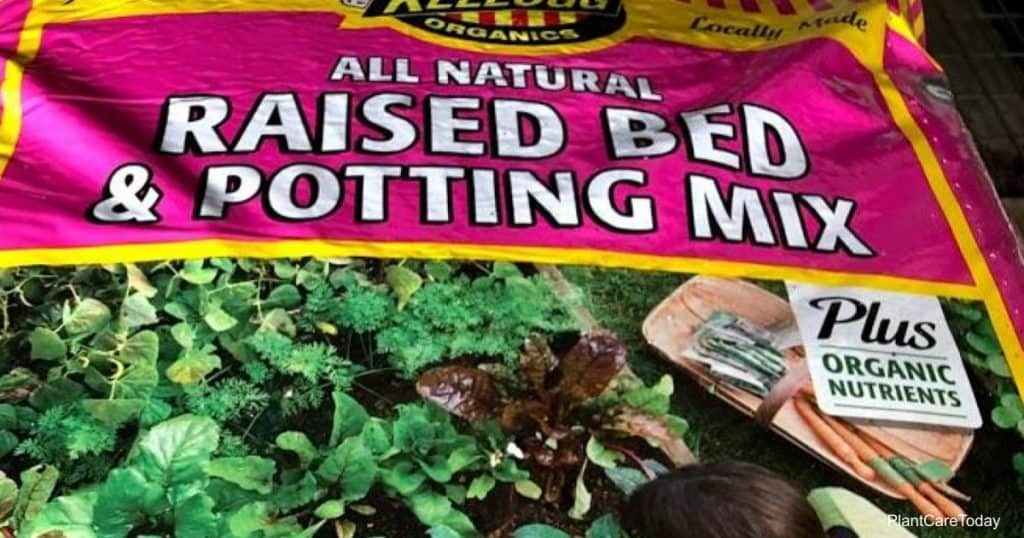Most things in your pantry or fridge go bad over time, but it may surprise you to learn that even potting soils expire. It might just be a bag of dirt, but when it comes to the end of its lifespan, it’s time to throw it out as with anything else.
So if you’ve been wondering, Does potting soil go bad? The short answer is yes!

The good news is that potting soil has a pretty long life. You won’t need to replace unused potting soil often. It might have a “shelf” life, but it isn’t a short one.
So what makes potting soil go bad, and how often do you need to replace it?
Why Does Potting Soil Go Bad?
Potting soil doesn’t go bad in the same sense that most organic things do. That is, it won’t rot. But it does lose its nutrients over time and become less healthy for your plants.
One of the main ingredients in potting soil is peat moss. Peat moss lives between one and two years. After this, the soil over time loses its nutrients and moisture content.
So quality potting soil that has expired is lower in nutrient levels, vitamins, and minerals and higher in salt, which can be bad for plants.
Unused soil also often has poor drainage. Healthy plants need well-draining healthy soil to allow plants to be moist but not soaked.
An old soil mix is also likely to be lower in oxygen, which is, of course, essential for plants.
How Do I Know When My Potting Soil Has Gone Bad?
It is usually not difficult to check if you have fresh potting soil. If the soil potting mix has gone bad, it may have an unpleasant smell or visible mold throughout.
You may also notice an unusual number of insects or insect larvae. These are all signs that the potting soil has gone bad.
If you don’t see anything unusual and the soil smells and looks normal, it is probably OK to use on your plants.
Of course, the simplest way to check if your potting soil is still good to use is to look at the expiration date. If it is a few years old, you might have more success using fresh soil. For more check out these soil topics.
- Soil Amendments To Improve Your Soil
- What is a Soil Conditioner and Why You Need It?
- Soil Porosity: Why It Is Important and How To Improve It
What Is The Best Way To Store Potting Soil?
Like most other things, potting soil will stay healthy longer if stored under the proper conditions.
If you keep it outside exposed to air or moisture, it is likely to develop mold and lose nutrients. It is also apt to attract pests that will consume essential vitamins and minerals in the soil.
So if you plan on keeping potting soil for a while, seal it in a dry storage container.
If it is too moist in storage, it will develop microbes. These can destroy the nutritional makeup in the soil.
Generally, potting soil lasts between one and two years. At that point, the nutrients like slow release fertilizer in the soil deplete.
It is best to replace the soil regularly to help plants thrive.
Will Old Potting Soil Hurt My Plants?
There is no definite way to know if expired and old potting soil will hurt your plants.
In some cases, you might find that they continue to grow without a problem. But there is also the chance that expired potting mix can stunt or kill plants.
The most obvious reason is the depleted nutrients in the soil. With less access to the “food” they need to thrive, plants may not grow well.
Expired potting soil also often has inferior drainage. This can lead to a buildup in salt, burned plant roots, and potential root rot.
Of course, these conditions can harm your plants as well.
Ultimately, there is no definite way of knowing the effect expired potting soil will have, so the best choice is to replace it.
Conclusion
If you have found an old bag of potting soil in your greenhouse or garage, you may have wondered: Can this bag of potting soil go bad?
While it has a long life, potting soil does lose nutrients over time.
Salt levels rise while nutrients diminish, reducing adequate drainage. So it is best to toss old soil and replace it with a fresh mix.
Related:Tips on Making Cactus Soil | How To Make Your Own Succulent Soil